This is the twenty-fourth film I saw at the 14th Pusan International Film Festival.
One of the reasons that made it attractive for me to attend this particular film festival is that the films that have recently won awards at Cannes, Berlin, or Venice often find their way here. Last year that includes movies like Hunger, Happy-Go-Lucky and last year's winner of the Cannes Palme d'Or, Entre Les Murs. This year's contribution from Cannes is ... this film.
I had some reservations about this film; I had earlier swore off Haneke's films after having to fast-forward through the static CCTV shots in his Cannes-winning and Juliette Binoche-starring Caché, and really if not for the Palme d'Or I would not have had the desire to watch this one. But I thought, hey, maybe it'll be different this time. Maybe Haneke will do something untypical compared to his past works and I might actually find something to like here.
My bad.
The White Ribbon is a narrative, but its story is so pedestrian (it's really just a long series of episodes in a German village in the year before World War I broke out) that it can't possibly be the point, and it isn't. The film is about the underlying stuff it wants to say, which, according to so many reviews and articles which talk about the film reverentially, is about the rise of Fascism in Germany and how violence is instilled among a group of people. Which is a layer I would have missed entirely had I not read those articles, because the film was filmed as if everything happens on the surface, without any symbolism or metaphors or esoteric language or surrealities or anything of any kind to indicate at the hidden layer.
That hidden layer can only be discerned if you look at the film from a higher perspective – i.e. you need to connect certain characters or certain scenes to the larger picture. I don't and thus I can't. I take scenes as they are when I watch movies; the meaning is contained within the scene itself, and so are the emotions – though that is not to say that scenes don't relate to each other, far from it, but scenes relate to each other to create continuity and build a story. If they're building meaning instead ... that's when a film becomes academic. Go read the praise this film is receiving. Are they ever praising its emotional aspects? In all sincerity?
Giving credit where it is due, the scenes are just compelling enough that, despite my palpable impatience with the film, and despite the rather disjointed plotting, I couldn't help but wonder what the ending of the film will be.
I don't know why it never occured earlier to me that what I experienced the last time I saw a Haneke film would occur again here. That Haneke does NOT provide unambiguous answers to the mysteries (or even the central mystery) he poses in his films. There will not be answers, just more questions that accumulate across the film ... and then the film ends, though it is obvious it isn't the end of the narrative.
But then the narrative isn't the point.
Visit Design and Art Online News for Daily Updated Hairstyles Collection
One of the reasons that made it attractive for me to attend this particular film festival is that the films that have recently won awards at Cannes, Berlin, or Venice often find their way here. Last year that includes movies like Hunger, Happy-Go-Lucky and last year's winner of the Cannes Palme d'Or, Entre Les Murs. This year's contribution from Cannes is ... this film.
I had some reservations about this film; I had earlier swore off Haneke's films after having to fast-forward through the static CCTV shots in his Cannes-winning and Juliette Binoche-starring Caché, and really if not for the Palme d'Or I would not have had the desire to watch this one. But I thought, hey, maybe it'll be different this time. Maybe Haneke will do something untypical compared to his past works and I might actually find something to like here.
My bad.
The White Ribbon is a narrative, but its story is so pedestrian (it's really just a long series of episodes in a German village in the year before World War I broke out) that it can't possibly be the point, and it isn't. The film is about the underlying stuff it wants to say, which, according to so many reviews and articles which talk about the film reverentially, is about the rise of Fascism in Germany and how violence is instilled among a group of people. Which is a layer I would have missed entirely had I not read those articles, because the film was filmed as if everything happens on the surface, without any symbolism or metaphors or esoteric language or surrealities or anything of any kind to indicate at the hidden layer.
That hidden layer can only be discerned if you look at the film from a higher perspective – i.e. you need to connect certain characters or certain scenes to the larger picture. I don't and thus I can't. I take scenes as they are when I watch movies; the meaning is contained within the scene itself, and so are the emotions – though that is not to say that scenes don't relate to each other, far from it, but scenes relate to each other to create continuity and build a story. If they're building meaning instead ... that's when a film becomes academic. Go read the praise this film is receiving. Are they ever praising its emotional aspects? In all sincerity?
Giving credit where it is due, the scenes are just compelling enough that, despite my palpable impatience with the film, and despite the rather disjointed plotting, I couldn't help but wonder what the ending of the film will be.
I don't know why it never occured earlier to me that what I experienced the last time I saw a Haneke film would occur again here. That Haneke does NOT provide unambiguous answers to the mysteries (or even the central mystery) he poses in his films. There will not be answers, just more questions that accumulate across the film ... and then the film ends, though it is obvious it isn't the end of the narrative.
But then the narrative isn't the point.
Das weiße Band
Das weiße Band

Das weiße Band
Das weiße Band

Das weiße Band
Das weiße Band

Das weiße Band
Das weiße Band
Das weiße Band
Das weiße Band

Das weiße Band
Das weiße Band

Das weiße Band
Das weiße Band

Das weiße Band
Das weiße Band

Das weiße Band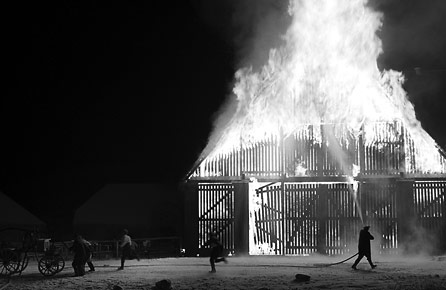
Das weiße Band

Das weiße Band
Das weiße Band

Das weiße Band
Das weiße Band

Das weiße Band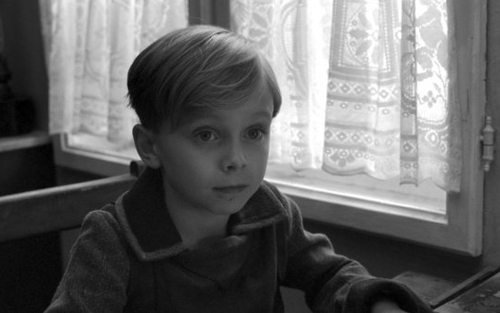
Das weiße Band

Das weiße Band
Das weiße Band

Das weiße Band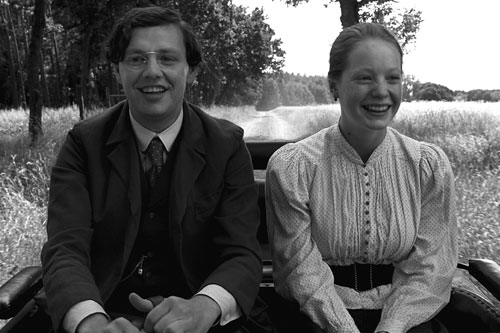
Das weiße Band

Das weiße Band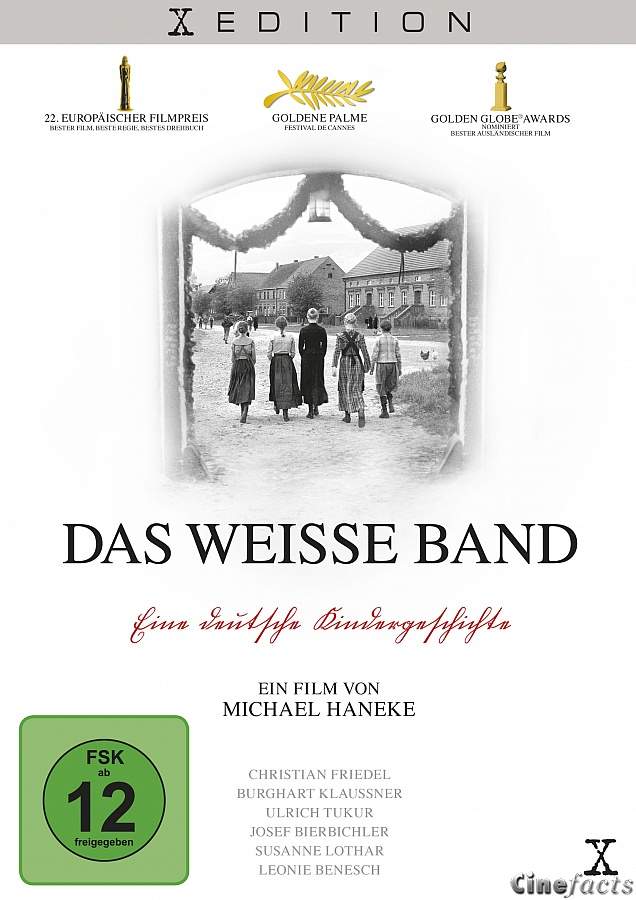
Das weiße Band

Das weiße Band
Das weiße Band

Das weiße Band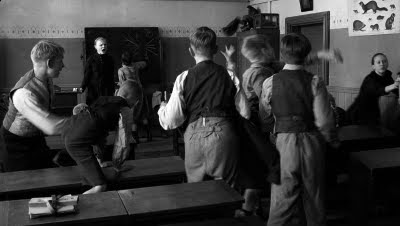
Source URL: https://purkua.blogspot.com/2011/10/das-weie-band-white-ribbon.htmlDas weiße Band

Visit Design and Art Online News for Daily Updated Hairstyles Collection






